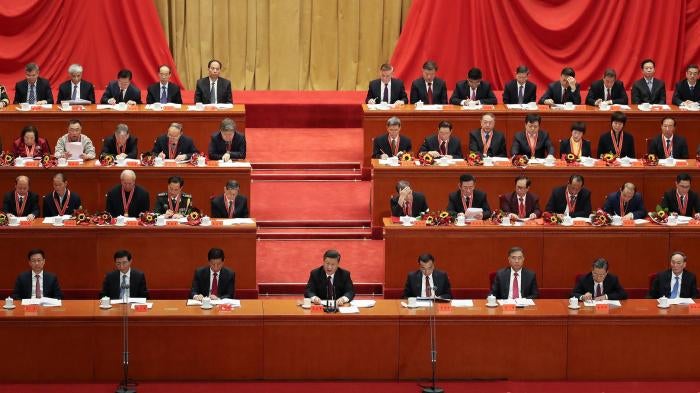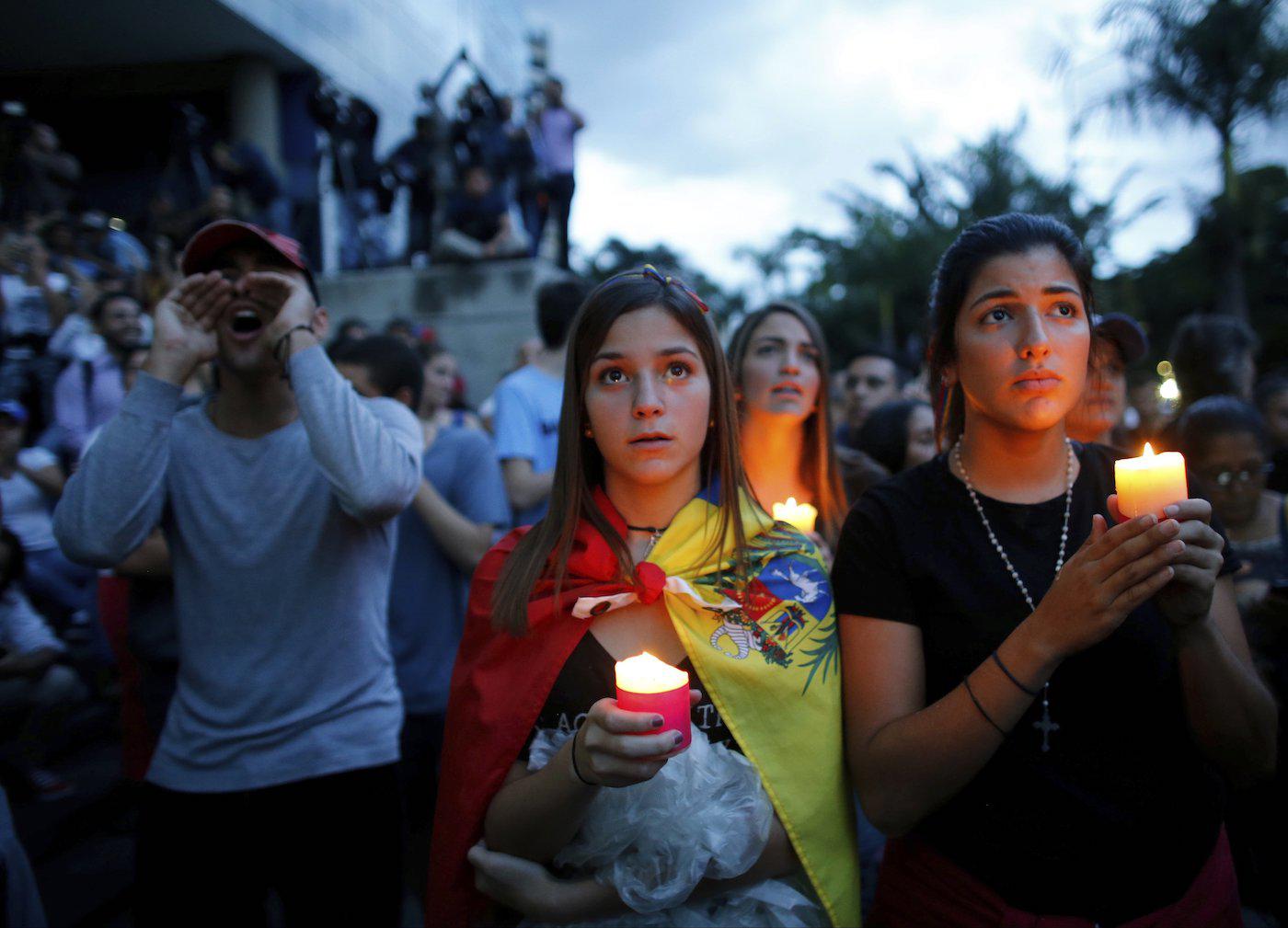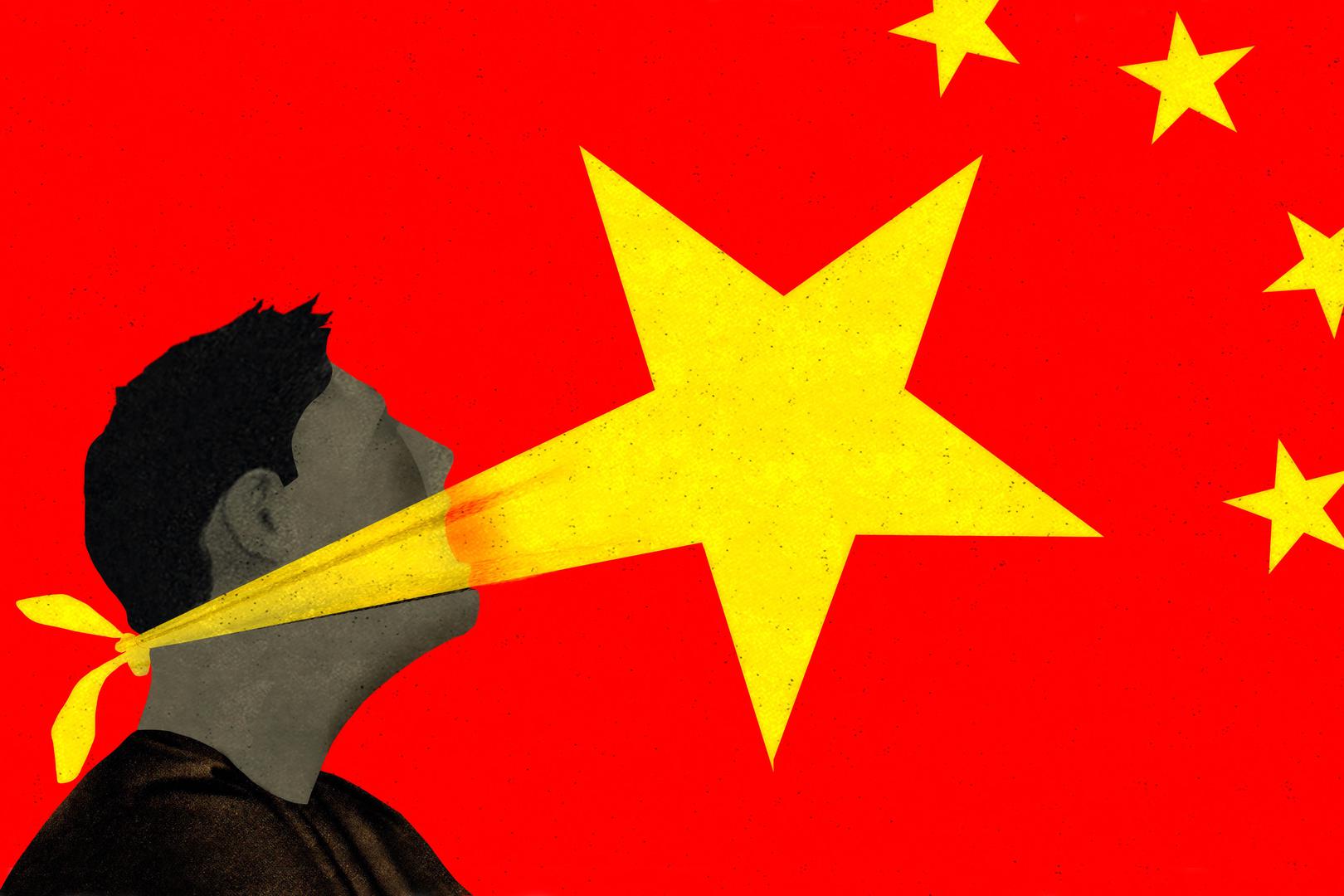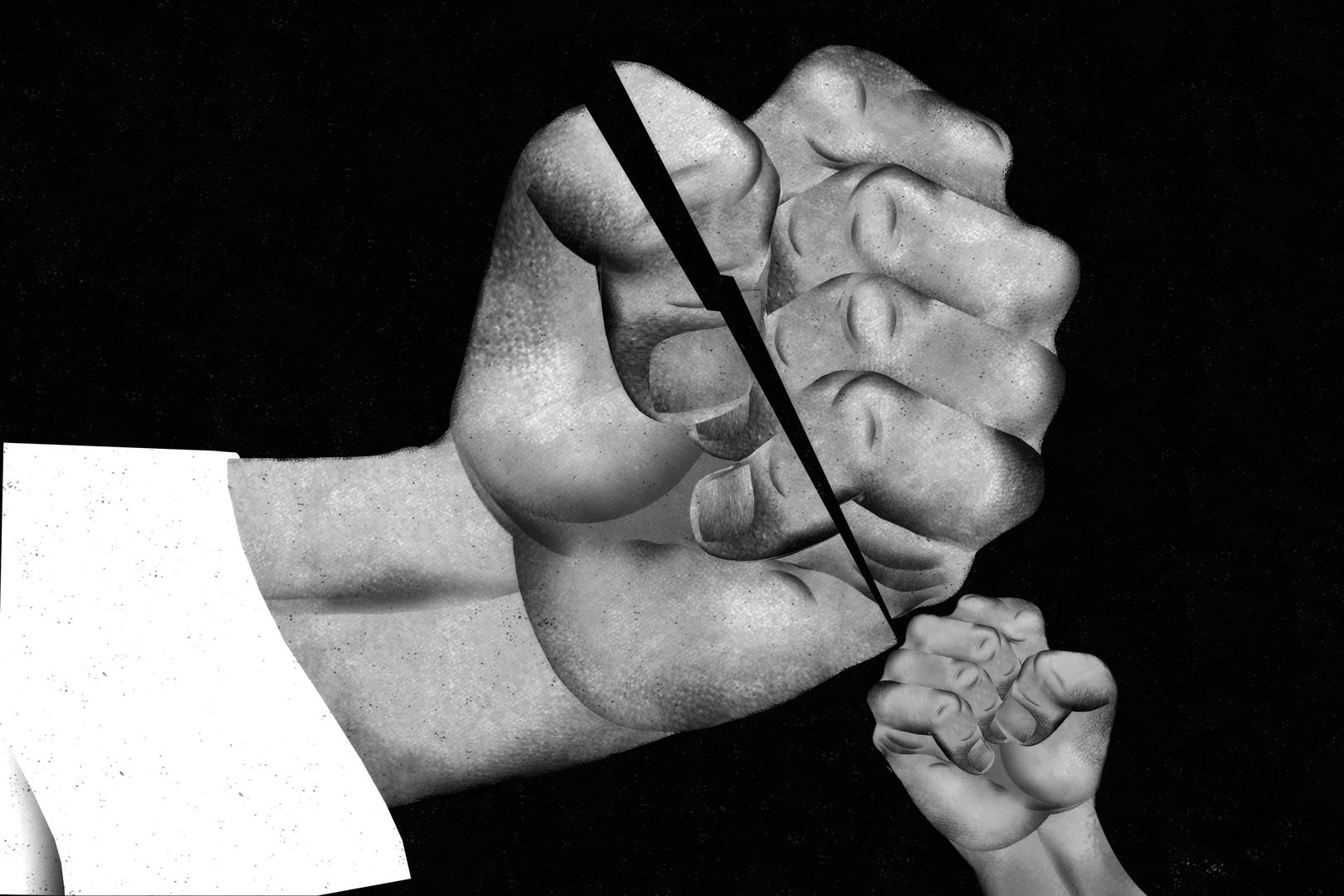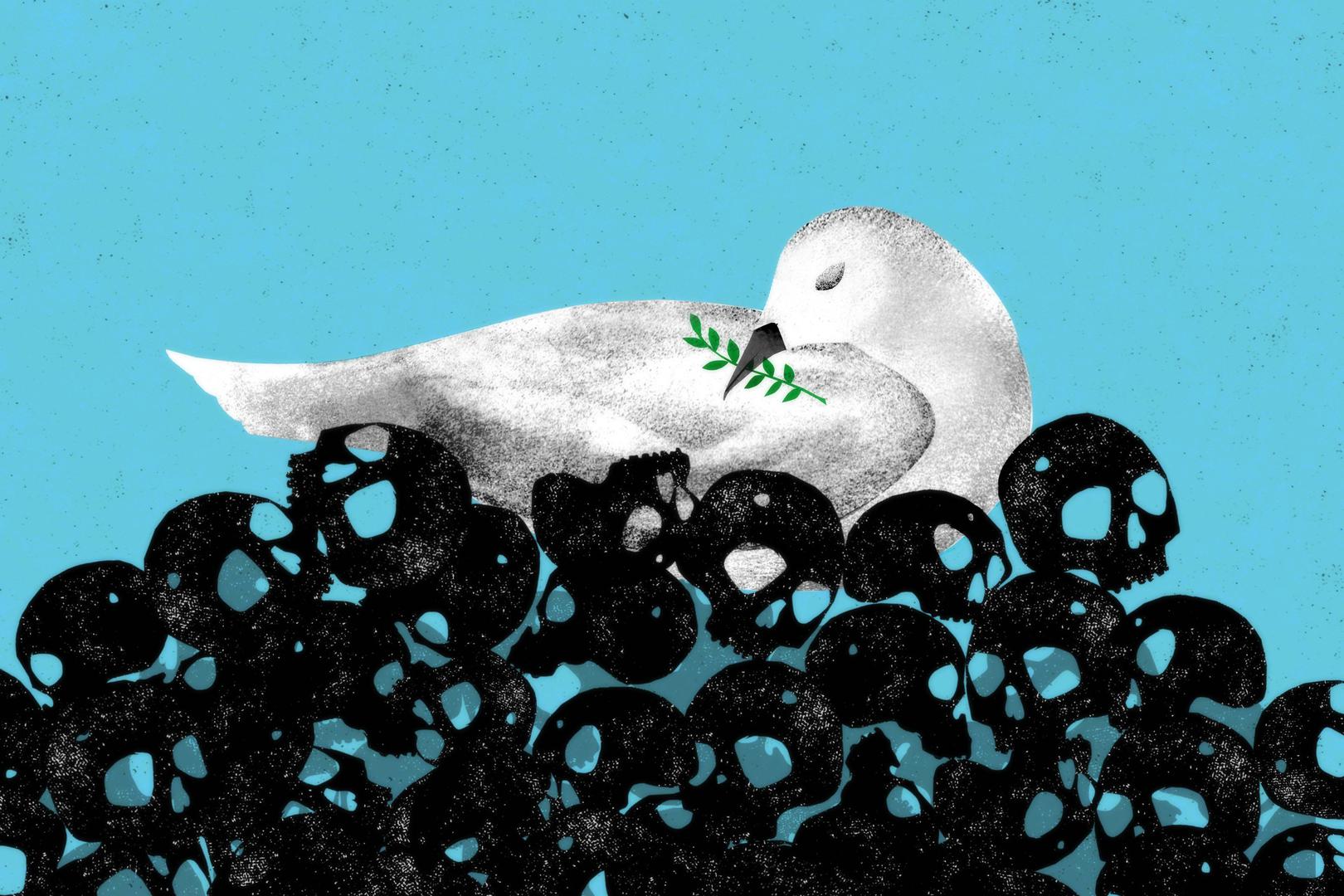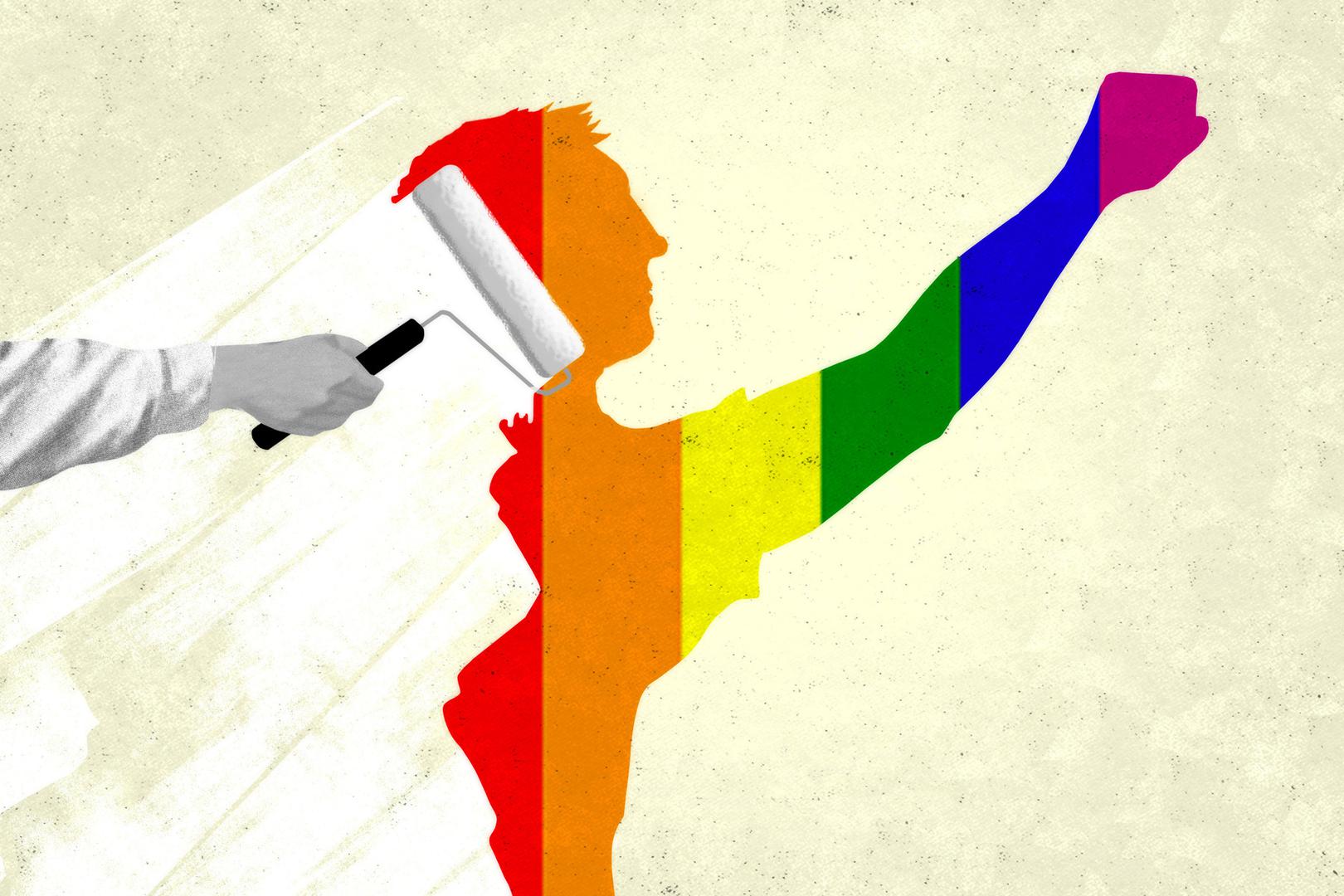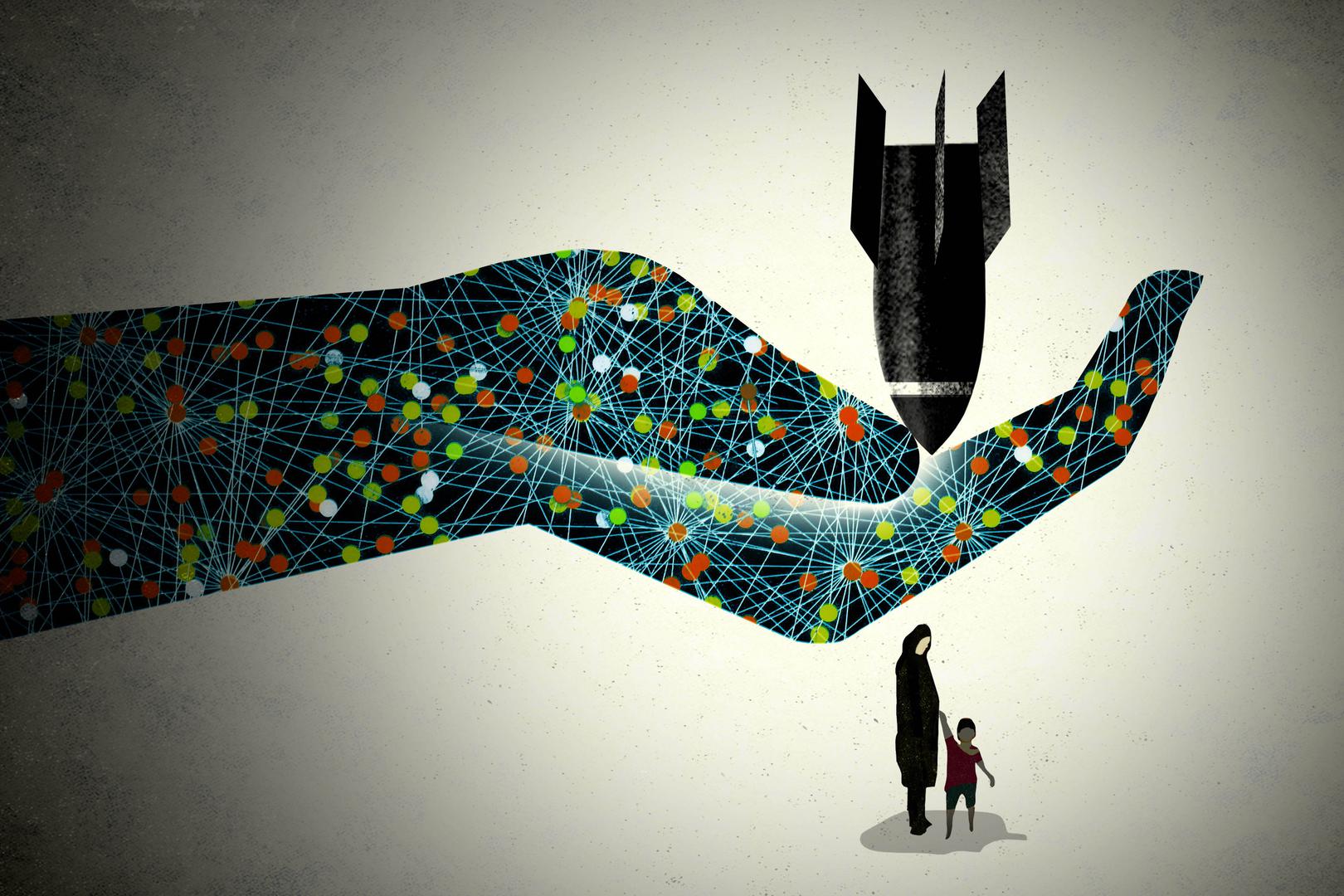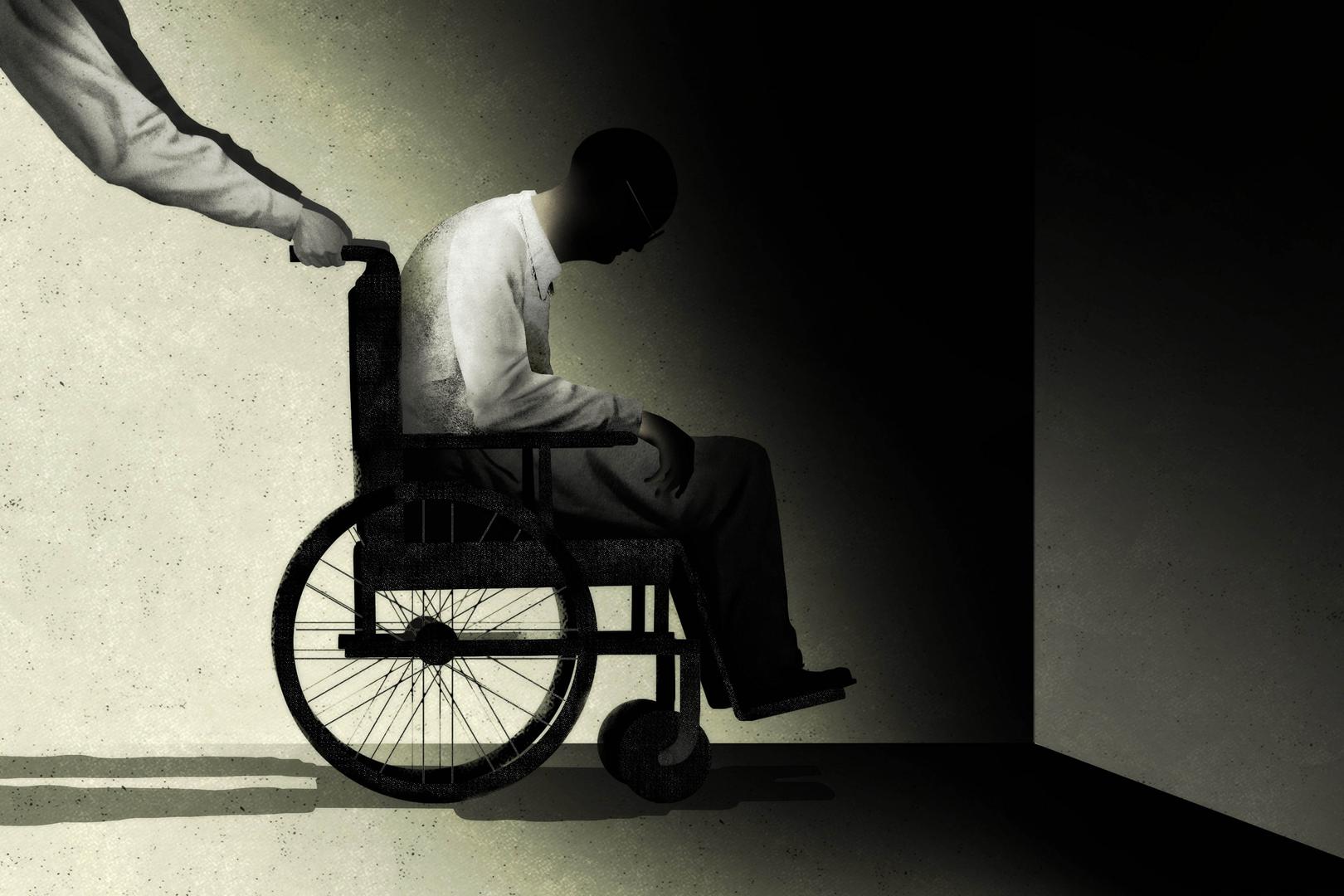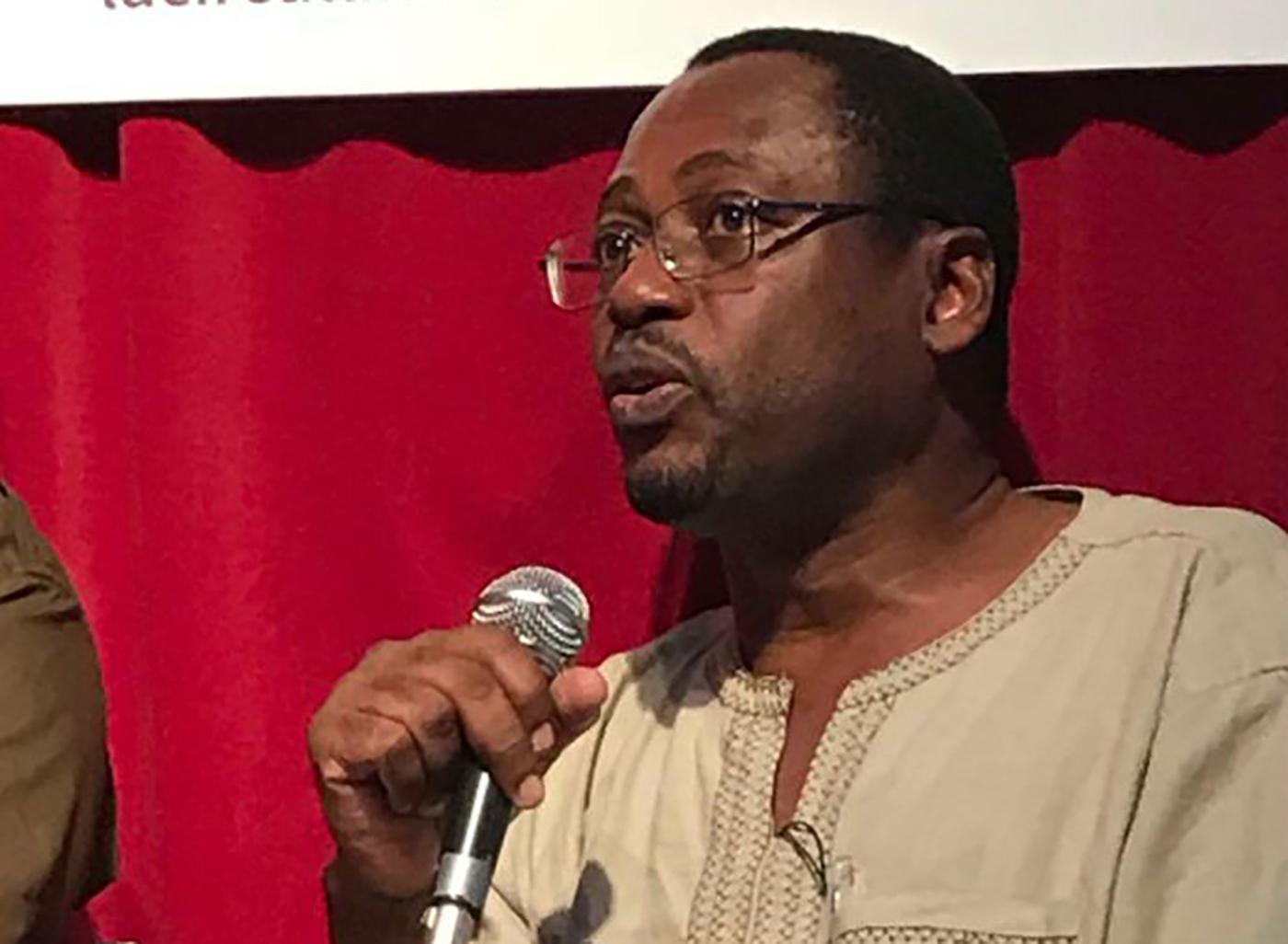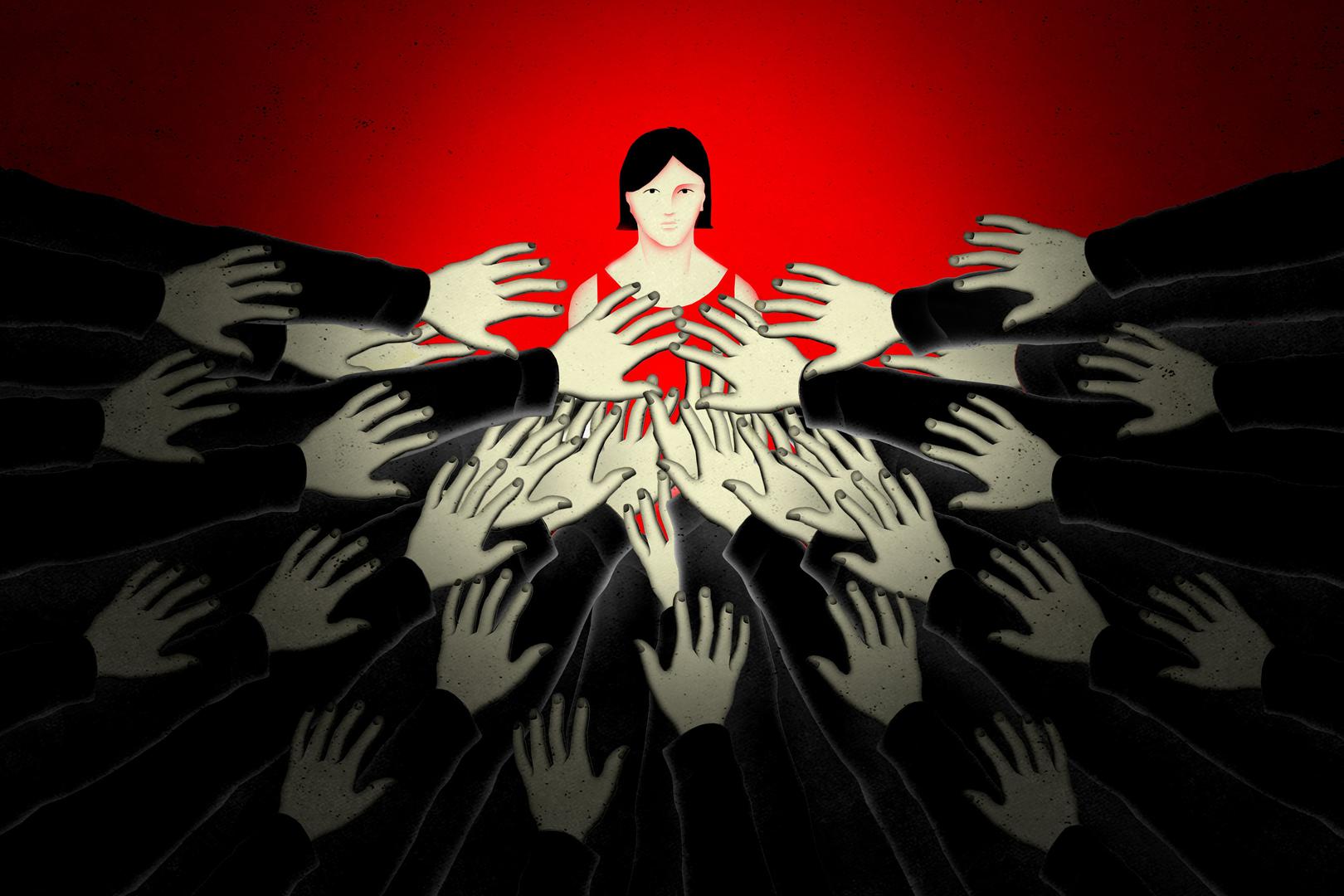President Xi Jinping, born in 1953, has indicated his intent to rule indefinitely after China’s legislature amended the constitution in March 2018 to scrap term limits for the presidency. This move was also emblematic of the increasing repression under Xi’s rule.
The Chinese Communist Party (CCP) also strengthened its power over the government bureaucracy in a major overhaul of central government structure in March. The party oversees a powerful new government body, the National Supervisory Commission, which is empowered to detain incommunicado anyone exercising public authority for up to six months without fair trial procedures in a system called “liuzhi.”
In October, Meng Hongwei, then-president of Interpol, the international police organization, and China’s vice minister for Public Security, disappeared upon return to China and was assumed to be held in “liuzhi.” The CCP also subsumed state bodies in charge of religious, ethnic, and overseas Chinese affairs under a party agency, the United Front Work Department.
Authorities dramatically stepped up repression and systematic abuses against the 13 million Turkic Muslims, including Uyghurs and ethnic Kazakhs, in China’s northwestern Xinjiang region. Authorities have carried out mass arbitrary detention, torture, and mistreatment of some of them in various detention facilities, and increasingly imposed pervasive controls on daily life. New regulations in Tibet now criminalize even traditional forms of social action, including community mediation by religious figures. In Hong Kong, a region promised “a high degree of autonomy” under the Sino-British Joint Declaration, the Chinese and Hong Kong governments hastened their efforts in 2018 to undermine people’s rights to free speech and political participation.
Human rights defenders continue to endure arbitrary detention, imprisonment, and enforced disappearance. The government maintains tight control over the internet, mass media, and academia. Authorities stepped up their persecution of religious communities, including prohibitions on Islam in Xinjiang, suppression of Christians in Henan province, and increasing scrutiny of Hui Muslims in Ningxia.
Authorities increasingly deploy mass surveillance systems to tighten control over society. In 2018, the government continued to collect, on a mass scale, biometrics including DNA and voice samples; use such biometrics for automated surveillance purposes; develop a nationwide reward and punishment system known as the “social credit system”; and develop and apply “big data” policing programs aimed at preventing dissent. All of these systems are being deployed without effective privacy protections in law or in practice, and often people are unaware that their data is being gathered, or how it is used or stored.
In 2018, animated by the global #MeToo movement, a number of Chinese women stepped forward exposing people who they said had sexually harassed them. Government censorship dampened subsequent public outrage.
In one of its only human rights concessions all year, Chinese authorities allowed Liu Xia, an artist and the widow of 2010 Nobel Peace Prize winner Liu Xiaobo, to leave for Germany in July after eight years of legally baseless house arrest. However, the decision of authorities to bar her family members from also leaving reflects Beijing’s campaign to punish dissent and restrict expression globally.
China’s growing global power makes it an exporter of human rights violations, including at the United Nations, where in 2018 it sought to block participation of its critics. China again ranked among countries singled out for reprisals against human rights defenders, and in March successfully advanced a Human Rights Council (HRC) resolution on a retrograde approach that it calls “win-win” or “mutually beneficial” cooperation. In this view, states do not pursue accountability for serious human rights violations but engage merely in “dialogue”; moreover, there is no role for independent civil society, only governments, and a narrow role for the UN itself.
Few governments spoke forcefully against these developments, even in the face of Chinese government harassment of people in their own countries or pressure on foreign companies to publicly support Chinese government positions.
Human Rights Defenders
The case of human rights lawyer Wang Quanzhang is emblematic of authorities’ ruthlessness toward human rights defenders and those activists’ fortitude. Beijing police detained Wang amid a national crackdown on human rights lawyers and activists in August 2015; while detained he was reportedly tortured with electric shocks and forced to take medications. In July, Wang was finally allowed to meet his lawyer for the first time. Charged with “subversion of state power,” he could face life imprisonment if convicted. During Wang’s detention, Li Wenzu, his wife, along with families of other lawyers and activists detained during the crackdown, have campaigned relentlessly for his release despite having to endure incessant intimidation and harassment.
Authorities continued politically motivated prosecutions and disbarments of human rights lawyers. In January, police detained lawyer Yu Wensheng, charging him with “inciting subversion of state power” and “obstructing public duties.” Judicial authorities revoked or suspended the licenses of over a dozen human rights lawyers, and even some who retain licenses have been unable to find work due to police pressure on employers.
In 2018, the courts handed down lengthy prison terms to a number of prominent human rights activists after protracted and sham prosecutions. In July, a Wuhan court sentenced veteran democracy activist Qin Yongmin to 13 years in prison for “subversion of state power.” Qin, 64, has previously spent a total of 22 years in prison or in “Re-education Through Labor.”
Also in July, a Chongqing court sentenced political cartoonist Jiang Yefei to six-and-a-half years in prison for “subversion of state power” and “illegally crossing a national border.” In 2015, Thai authorities forcibly repatriated Jiang and human rights activist Dong Guangping to China even after the pair had been granted UNHCR refugee status. Dong, who was tried alongside Jiang, was given a three-and-a-half-year sentence for inciting subversion and illegal border crossing.
Other defenders continue to face long detentions without trials or verdicts. Liu Feiyue, founder of the human rights news website Civil Rights and Livelihood Watch, was detained in November 2016 and charged with “inciting subversion of state power.” He was tried in August 2018 but had not yet been sentenced at time of writing. Veteran activist and founder of the human rights website “64,” Tianwang Huang Qi, has been detained since November 2016 but not yet tried. Huang suffers from several health conditions for which he has not received adequate treatment, including possible imminent kidney failure and lung inflammation.
More human rights defenders were detained in 2018. In July, authorities detained Dong Yaoqiong after she poured ink over a poster of President Xi in Shanghai. Police later held her in a psychiatric hospital and prevented her father from seeing her. In August, Guangxi police detained activist and a leader in the Tiananmen Square protests Zhou Yongjun for possessing materials related to Falun Gong, a banned religious group in China. Also in August, Shenzhen police detained dozens of labor and student activists after they gathered to show support to factory workers at the welding machinery company Jasic International, who were fired for trying to form a union. Some were later released but 14 remained in custody or under house arrest at time of writing.
Authorities also tried to silence Chinese human rights defenders abroad by harassing and detaining their families in China. In January 2018, Guangzhou authorities forcibly disappeared Li Huaiping, wife of Chen Xiaoping, a US-based journalist for the Chinese-language Mirror Media Group. The disappearance came shortly after Chen interviewed Guo Wengui, a Chinese billionaire fugitive who exposed corruption among China’s ruling elite. Authorities continually harassed the China-based family members of Canadian human rights activist Anastasia Lin, banning them from travel abroad and threatening to persecute them “like in the Cultural Revolution.”
In 2018, authorities continue to subject various activists and lawyers to travel bans, surveillance, detention, and torture and ill-treatment for their efforts to engage with the UN. Using human rights treaties for advocacy was cited in the criminal indictment against activist Qin Yongmin, who was sentenced to 13 years in prison.
Freedom of Expression
Chinese authorities continue to harass and detain journalists who cover human rights issues, as well as their interviewees. In May, Beijing police physically assaulted and briefly detained a cameraperson for the Hong Kong broadcaster Now TV reporting on a human rights lawyer’s court hearing. In July, Hunan police detained independent blogger Chen Jieren after he wrote articles alleging corruption by provincial party officials; state media repeatedly attacked Chen as an “internet pest” who had “polluted the online space.” In August, Shandong police broke into the home of retired professor Sun Wenguang as he was giving a live interview with the US broadcaster Voice of America (VOA). Sun was subsequently put under house arrest. Police later also briefly detained VOA journalists who attempted to interview Sun again.
Authorities expanded their internet censorship regime to suppress politically sensitive information and “vulgar” content. In January 2018, social media platform Weibo suspended several of its most popular programs after authorities ordered it to clean up “wrong-oriented” and “vulgar” information. In April, regulators shut down Neihan Duanzi, a parody and meme app with over 38 million monthly users.
In January 2018, Chinese authorities forcibly disappeared Swedish citizen and bookseller Gui Mihai while he was traveling with Swedish diplomats. Gui, a publisher of books about China’s political intrigues, had been imprisoned for two years from 2015 to 2017 after being abducted from Thailand.
In August, media reports revealed that Google, which suspended its search service in China in 2010 citing censorship concerns, had been developing a censored search engine app for the Chinese market. The app would reportedly comply with China’s expansive censorship requirements by automatically identifying and filtering sites blocked by the Great Firewall, China’s internet filtering system.
The government also tightened its ideological grip over universities. A number of professors, including foreigners, were punished for making comments critical of the government. In July, the University of Nottingham Ningbo China removed Stephen Morgan from its management board after he wrote an online essay critical of the Chinese Communist Party. In August, Guizhou University dismissed economics professor Yang Shaozheng, alleging him of “disseminating politically incorrect views.” Peking University did not renew the contract of American professor Christopher Balding, who had previously launched a campaign calling on Cambridge University Press to resist the Chinese government’s pressure to censor academic articles.
The Chinese government also pressured foreign companies to adhere to disputed terms and policies. In January, US-based Marriott International apologized for listing Taiwan and Tibet as separate countries on its website after authorities shut down the website and app in China for a week. In March, Marriott fired an employee for “liking” a pro-Tibet tweet. After Chinese authorities threatened to ban them from operating in China, dozens of international airlines made changes on their websites to refer to Taiwan as part of China.
Freedom of Religion
The government restricts religious practice to five officially recognized religions in officially approved premises. Authorities retain control over religious bodies’ personnel appointments, publications, finances, and seminary applications. The government classifies many religious groups outside its control as “evil cults,” and subjects members to police harassment, torture, arbitrary detention, and imprisonment.
In February, revised Regulations on Religious Affairs came into effect. Designed to “curb extremism” and “resist infiltration,” they ban unauthorized teaching about religion and going abroad to take part in training or meetings.
In March, a Yunnan court sentenced Christian pastor John Sanqiang Cao to seven years in prison for “organizing others to illegally cross the border” between China and Myanmar. Cao had been involved in educational projects for impoverished minority groups in Myanmar.
A crackdown on Christian churches intensified in Henan province during the year, as authorities demolished dozens of church buildings or the crosses atop of them, prevented believers from gathering in house churches, and confiscated bibles and other religious materials.
In September, the Vatican and Beijing reached a historic deal, ending a decades-long standoff over authority to appoint bishops in China. China’s estimated 12 million Roman Catholics are divided between an underground community that pledges allegiance to the Pope and a government-run association where bishops are state appointed. Under the accord, Beijing will propose names for future bishops and the Pope will have veto power over the appointments.
In August, in the heavily-Hui Muslim Ningxia region, thousands of Huis gathered to protest the demolition of the Grand Mosque in the town of Weizhou. Ningxia authorities have reportedly also moved Islamic icons and Arabic signs from streets across the region.
Hong Kong
Beijing’s assault on Hong Kong’s freedoms, particularly the rights to free expression, association and political participation, worsened considerably in 2018.
The Hong Kong government has continued to disqualify pro-democracy figures from running for seats on Hong Kong’s Legislative Council (LegCo). In January and October, the Hong Kong Electoral Affairs Commission disqualified Demosisto Party candidate Agnes Chow and Labor Party candidate Lau Siu-lai, respectively, stating that their promotion of “self-determination” for Hong Kong is “inconsistent” with the Basic Law.
The Hong Kong and Chinese governments have harassed people for peaceful pro-independence speech. In March, they denounced pro-democracy scholar Benny Tai, equating his hypothetical discussion of Hong Kong independence with “a threat to national security.” In August, Chinese Ministry of Foreign Affairs officials had requested that the Hong Kong Foreign Correspondents Club cancel a talk by Andy Chan, a pro-independence activist. After the club refused, Hong Kong authorities rejected without explanation its vice-president’s application to renew his work visa.
In August, Demosisto reported that police had briefly detained and interrogated two members in the mainland in March and August. In September, a pro-independence group, Studentlocalism, said police in the mainland had harassed relatives of two members for their political activities in Hong Kong.
In September, new regulations went into effect allowing mainland law to prevail in Hong Kong’s West Kowloon railway terminus and all operating trains going between Hong Kong and mainland China—a significant step in China’s erosion of Hong Kong’s autonomy.
In an unprecedented move, the Hong Kong government in September banned a political party—the pro-independence Hong Kong National Party. Authorities stated that the party “poses a real threat to national security,” against which they had to take “preventive measures.”
Xinjiang
Chinese authorities are hostile to many expressions of Uyghur identity, and have in recent years justified sweeping repression as a necessary response to threats of terrorism.
The Chinese government began waging a “Strike Hard Campaign against Violent Extremism” in Xinjiang in 2014. But the level of repression increased dramatically after Communist Party Secretary Chen Quanguo was transferred from the Tibet Autonomous Region to assume leadership of Xinjiang in late 2016.
Since then, authorities have stepped up mass arbitrary detention, including in pretrial detention centers and prisons, both of which are formal facilities, and in “political education” camps, which have no basis under Chinese law. Credible estimates indicate that 1 million people are being indefinitely held in the camps, where Turkic Muslims are being forced to learn Mandarin Chinese, praise the government and party, and abandon many aspects of their distinct identity. Those who resist or are deemed to have failed to “learn” are punished.
Outside these detention facilities, authorities subject Turkic Muslims in Xinjiang to extraordinary restrictions on personal life. Authorities have recalled passports throughout the region, and to travel from one town or another, people have to apply for permission and go through checkpoints. They are subjected to persistent political indoctrination, including compulsory flag-raising ceremonies and political or denunciation meetings. With unprecedented levels of control over religious practices, authorities have effectively outlawed the practice of Islam in the region.
They have also subjected people in Xinjiang to pervasive surveillance. Authorities employ high-tech mass surveillance systems that make use of QR codes, biometrics, artificial intelligence, phone spyware, and big data. And they have mobilized over a million officials to monitor people, including through intrusive programs in which officials regularly stay in people’s homes.
The campaign has divided families, with some family members in Xinjiang and others abroad caught unexpectedly by the tightening of passport controls and border crossings. Children have at times been trapped in one country without their parents. The government has barred Turkic Muslims from contacting people abroad, and has pressured some Uyghurs and ethnic Kazakhs living outside the country to return to China, while requiring others to provide detailed personal information about their lives abroad.
The collective punishment of families was particularly striking in the case of five US-based Radio Free Asia Uyghur Service journalists. Media reports in February said their relatives in Xinjiang have been detained in retaliation for their journalism about the region.
In November, China underwent scrutiny of its human rights record through the Human Rights Council’s Universal Periodic Review (UPR). More than a dozen mostly Western countries challenged China’s widespread detention of Turkic Muslims in Xinjiang, with some echoing the high commissioner’s call to allow UN experts access to the “political education” camps. No member country of the Organisation of Islamic Cooperation explicitly addressed the issue, although Turkey expressed concern at the “confinement of individuals without legal grounds” without making specific reference to Xinjiang.
Tibet
Authorities in Tibetan areas continue to severely restrict religious freedom, speech, movement, and assembly, and fail to redress popular concerns about mining and land grabs by local officials, which often involve intimidation and arbitrary violence by security forces. Authorities intensified surveillance of online and phone communications.
There were clear findings by UN human rights experts that the charges were baseless. Nonetheless, courts sentenced former political prisoner Tsegon Gyal in January to three years in prison and language activist Tashi Wangchuk in May to five years.
Several hundred Tibetans traveling on Chinese passports to India for a January 2018 teaching by the Dalai Lama were forced to return early when officials in Tibetan areas threatened retaliation against those traveling abroad and their family members back home.
Intensified political education has been reported in monasteries and schools, and for the public at large. Tibetan authorities have used a nationwide anti-crime campaign to encourage people to denounce members of their communities on the slightest suspicion of sympathy for the exiled Dalai Lama or opposition to the government.
Several more cases were reported in 2018 of land grabs by local officials for construction projects, both in the Tibet Autonomous Region and other Tibetan areas. In Driru county, 30 villagers were detained in May for allegedly sharing with international media information about the arrest of a village leader who had led popular opposition to a mining project on a sacred mountain.
Tibetans continue to self-immolate to protest Chinese policies; four more such protests took place between November 2017 and time of writing.
Women’s and Girls’ Rights
In 2018, the #MeToo movement gained momentum in China as a slew of prominent academics, journalists, and activists were accused on social media of sexual misconduct. After a prominent state media TV host and a senior Buddhist monk at a government-controlled temple were accused of sexual harassment, censors deleted social media posts about those cases. In June, China University of Petroleum authorities held Ren Liping, a student who had accused an ex-boyfriend of raping her on campus, for six days in a hotel room after she protested against the university and police for mishandling her allegations.
While women in China may be more willing to speak out against sexual harassment, seeking legal redress is still very difficult. Chinese law prohibits sexual harassment, but its failure to define the term makes meaningful legal action nearly impossible.
Women continue to face widespread discrimination in the job market. In the 2018 national civil service job list, 19 percent specified a requirement or preference for men, up from 13 percent from the previous year. Technology giants including Alibaba and Tencent pledged to ensure gender equality in their recruitment.
As China faces an unprecedented sex ratio imbalance and aging population, authorities promoted traditional roles for women, encouraging them to marry early and have children. The “bride shortage” in China has triggered trafficking of women from a number of neighboring countries, an abuse largely ignored by the Chinese government. Although the “one-child policy” has been relaxed to a “two-child policy,” women and girls continue to face violations of their reproductive rights.
The Chinese government remains hostile to women’s rights activism. In March, social media platforms Weibo and WeChat permanently suspended the accounts of Feminist Voices, a social media publication run by outspoken feminists.
Sexual Orientation and Gender Identity
While China decriminalized homosexuality in 1997, it lacks laws protecting people from discrimination on the basis of sexual orientation or gender identity, and same-sex partnership is not legal.
In March, the Beijing International Film Festival pulled an award-winning film featuring a homosexual relationship, “Call Me By Your Name,” after it failed to pass government approval. In April, Chinese social media platform Weibo announced that posts related to gay culture would be taken down, as part of a “cleanup” effort. The move prompted widespread protest: many people posted messages with the hashtag “I am gay” and rainbow emoticons. Weibo subsequently dropped the restriction.
In Hong Kong, the territory’s highest court in July ruled that the government’s denial of a visa and associated benefits to the same-sex spouse of a legal resident amounted to discrimination. Around the same time, Hong Kong authorities decided to move a selection of 10 children’s books with LGBT themes to the “closed stacks” in public libraries.
A gay teacher in September filed a suit against his former school, alleging that he was fired because he posted information on social media about a lesbian, gay, bisexual, and transgender (LGBT)-themed event that he had attended.
Refugees and Asylum Seekers
China continued to arrest and forcibly return hundreds, and perhaps thousands, of North Koreans, who Human Rights Watch considers refugees sur place, to North Korean state security services, who has long tortured, sexually abused, and imprisoned them. Beijing refused to consider fleeing North Koreans as refugees and would not grant UNHCR access to them or areas on the North Korea-China border, further violating its obligations as a party to the 1951 Refugee Convention.
Key International Actors
While some governments and parliaments publicly expressed concerns about Beijing’s human rights violations, and continued to try to observe trials and meet with human rights defenders in China, few took forceful action to end abuses or press for accountability.
In March, China proposed a resolution at the Human Rights Council, focusing on its vision for “win-win cooperation” while omitting any role for independent civil society, any mention of accountability, and other core parts of the council’s mandate. The resolution was adopted by a comfortable margin with the US as the only no vote. Throughout the year, members of the US Congress and the administration called for sanctions and export controls.
In July, Germany secured the release of Liu Xia. In September, Malaysia’s new premier, Anwar Ibrahim, publicly called for talks with China about violations in Xinjiang. Sweden did not secure the release of bookseller Gui Minhai; Australia adopted new laws to counter Chinese political interference at home, but took few meaningful steps to challenge the root cause of political repression in China. The European Parliament and the European Union’s External Action Service repeatedly called for release of jailed and disappeared human rights lawyers, dissenters, and activists and expressed concerns about the situation in Xinjiang, but their efforts were partly frustrated by the EU leaders’ failure to echo these concerns and calls publicly at a summit in July.
UN Secretary-General Antonio Guterres visited China in April and September without publicly expressing his concern about these issues. However, new UN High Commissioner for Human Rights Michelle Bachelet, the Committee to Eliminate Racial Discrimination, and the assistant secretary-general for human rights expressed concern particularly about Xinjiang and abuses of human rights defenders.
China continues to use its permanent seat on the UN Security Council to block important discussions of human rights issues. In March 2018, China and Russia successfully mobilized other council members to prevent then-High Commissioner for Human Rights Zeid Ra’ad al-Hussein from addressing the council on Syria. In October 2018, it circulated a letter expressing its opposition to the "internationalization" of efforts to address the Rohingya crisis in Myanmar and its opposition has stymied stronger Security Council action to react to the crisis.
Foreign Policy
Throughout the year China pressed ahead with its “One Belt, One Road” initiative despite the lack of safeguards or respect for human rights in many participating countries. Some governments, including Myanmar and Malaysia, backed away from previously agreed bilateral investment arrangements, citing unsustainable debt and concerns about sovereignty.
China also pressed other governments, including Egypt, Kazakhstan, and Malaysia, to forcibly return asylum seekers to China.
Major Chinese technology companies, including Huawei, iFlytek, and ZTE, all of which enjoy close relations with the government and contribute to the police’s mass surveillance efforts, tried to expand abroad in 2018. Some were rebuffed by Australia, Canada, and the US due to security concerns.
